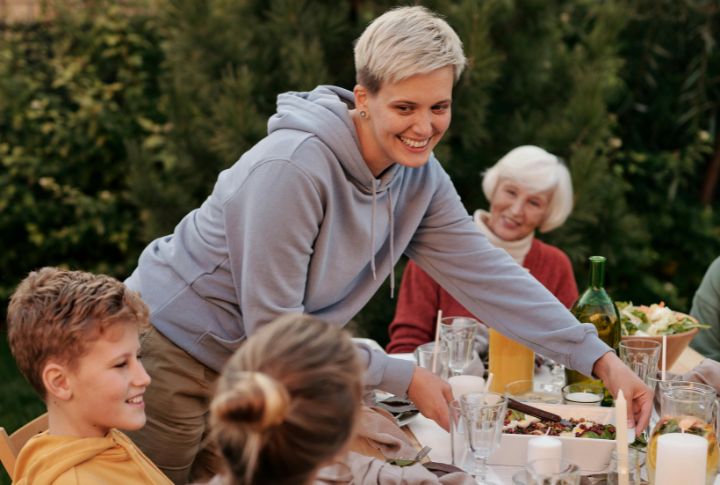
Holiday gatherings always seem calm—until someone brings up religion, and suddenly the room heats up faster than the kitchen oven. Every family has those topics everyone pretends not to hear, yet they still sneak into the conversation. If your holidays come with debates no one asked for, you’re in the right place. Here are the arguments that always stir things up.
“Stop Acting Like I Abandoned The Religion Just Because I Don’t Attend Services”
Family members can quickly assume someone has left the faith when they stop attending services. The pressure isn’t about the place of worship—it’s about feeling emotionally distant from the group. Such a conversation is also hard to end once someone is defending their spiritual choices while still wanting to belong during the holidays.
“You’re Misinterpreting Scripture Again, And That’s Not What The Text Says”
Old arguments about interpretation can flare up at the slightest mention of a religious topic. Everyone suddenly acts like a theologian and quotes verses with complete certainty. Tempers rise when no one agrees on the meaning, leaving the family to argue instead of enjoying the meal that was supposed to bring everyone together.
“Don’t Dismiss My Beliefs As A Phase Just Because They Look Different Now”
Words matter more than people realize at holiday tables. Suggesting someone’s faith is temporary sends a clear message: your choices don’t deserve respect. The underlying rejection creates instant walls between family members. Unfortunately, by then, everyone’s too hurt to hear each other’s actual perspectives.
“Please Don’t Use Grandma’s Beliefs To Guilt Me Into Anything”
Emotional manipulation isn’t always obvious. Mentioning how Grandma would feel about your choices isn’t innocent—it’s pressure. This works because it mixes love with obligation. It also quickly becomes impossible and deeply unfair to defend yourself against what a deceased relative “would have wanted.”
“Skipping Rituals Doesn’t Mean I’ve Stopped Caring About This Family”

Participation and love aren’t synonyms, though families treat them as if they were. Skipping grace or services registers as a personal affront rather than an individual choice. The real issue is that people mistake shared activities for the bonds themselves. Meanwhile, explaining your perspective feels futile against years of ingrained expectations of togetherness.
“I Can Enjoy The Holiday Without Wrapping It In Spiritual Meaning”
Generational friction appears quickly when family members celebrate for different reasons. Older relatives may see secular enjoyment as watering down tradition, whereas younger ones view it as harmless fun. What escalates the moment is the assumption that one side is disrespecting the other, turning a simple preference into a moral argument.
“Stop Reopening The Debate About How Spiritual The Kids Should Be Raised”
Holiday peace disappears fast when relatives question whether the kids are getting “enough” religious exposure. One parent thinks the original agreement still works, while the other feels sacred traditions are slipping away. What begins as a casual concern quickly becomes a debate over whose version of faith the children should inherit.
“Telling Me To Pray About It Feels Like You’re Dismissing Everything I’ve Already Processed”
Advice rooted in good intentions can land badly when someone has already spent years wrestling with their faith. Holiday pressure amplifies that frustration. Instead of comfort, the suggestion feels like a dismissal of emotional work, which leaves the person feeling unheard at a time when the gathering was supposed to feel supportive.
“Don’t Use Fear About The Afterlife To Win An Argument With Me”
Once salvation and eternal consequences enter the conversation, the tone shifts instantly. Relatives believe fear will spark reconnection, but it usually creates distance instead. By the end, the conversation becomes less about genuine care and more about emotional pressure—something that guarantees hurt rather than holiday harmony.
“Tradition Matters, But That Doesn’t Mean Every Practice Has To Stay Frozen In Time”
Honoring heritage doesn’t require repeating every detail exactly. When you float alternative approaches, relatives hear threats to something sacred they’ve carefully protected. Their reaction stems from deeper concerns about continuity and connection. Sadly, without acknowledging those vulnerable feelings, both sides just talk past each other increasingly loudly.

